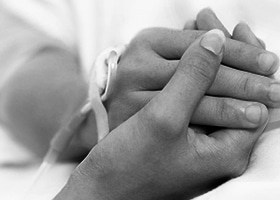 A new study by the Women’s College Hospital in Toronto has revealed that women who suffer from mental disabilities are more likely to experience abuse from a partner than women who were not limited by a psychological, emotional or mental health condition.1 This study was published in the BioMed Central Public Health journal, and focused on women with disabilities and the prevalence of partner violence. Researchers found that the more severe the disability, the more likely the woman was to be victimized in an intimate partner relationship. This study is the first Canadian population-based examination of the relationship between mental illness and violence toward women, but its findings resonate across borders. Doctors and medical assistants should be aware of the results of this study and be prepared to recognize symptoms of abuse, especially among populations that are physically or emotionally unable to seek help.
A new study by the Women’s College Hospital in Toronto has revealed that women who suffer from mental disabilities are more likely to experience abuse from a partner than women who were not limited by a psychological, emotional or mental health condition.1 This study was published in the BioMed Central Public Health journal, and focused on women with disabilities and the prevalence of partner violence. Researchers found that the more severe the disability, the more likely the woman was to be victimized in an intimate partner relationship. This study is the first Canadian population-based examination of the relationship between mental illness and violence toward women, but its findings resonate across borders. Doctors and medical assistants should be aware of the results of this study and be prepared to recognize symptoms of abuse, especially among populations that are physically or emotionally unable to seek help.
Fear of social isolation prevents reports of abuse
One of the lead researchers in this study, Janice DuMont, stated in an interview that women with mental health-related disabilities are usually very fearful of attracting attention to abusive relationships because “the consequences of experiencing discrimination can be devastating.”1 Social isolation may occur, which discourages many women from seeking help for their illness as well as their abusive relationship. Many women with mental health problems reported lower levels of trust toward their co-workers, neighbors and even families, and a much weaker sense of belonging to their community because of the lack of understanding they perceived from others. Illnesses that severely affect women’s daily activities have isolating effects, and because the majority of these women reported lower household income, they were less likely to have access to health care or mental health therapies.1 More than 6,800 women were involved in this study, and the findings revealed that close to 45 percent of women with a severe mental health-related disability reported abuse in the past five years.2 Definitions of abuse included sexual, emotional, physical and financial mistreatment by a partner, and the abuse was often recurrent and linked to negative emotional and physical consequences. The researchers argued that women with disabilities needed to be the target of more prevention and intervention campaigns.2
The definition of abuse is evolving
The Center for Research on Women with Disabilities (CROWD) has published reports that focus on the fact that women with mental disabilities are more likely to need to use every major category of health facilities (from public health clinics to emergency rooms). Many of these women, because of their special needs, are required to see more than one specialist within a given year. These facts further emphasize the importance of the role that health care professionals have in the identification and prevention of abuse to these women.3 The definition of abuse has evolved over the years, and medical professionals should be aware of the signs and be prepared to intervene if abuse is suspected. Today, health care professionals treating women with disabilities are encouraged to provide their patients with the opportunity to identify and report whether they are the victims of abuse. One way to do this is to screen the patient privately, rather than rely on a spouse or family member for information. Giving women with disabilities a safety backup plan – like making sure their patient has more than one caregiver to contact or encouraging them to keep a packed bag with extra clothes, medication, keys, money and other supplies if they are forced to leave their home – is one of the steps many nurses and doctors are taking. By reassuring patients that their reports of any abuse are confidential, health care providers are more likely to gain the trust of their female victims.3 Changing the perception of abuse against women with disabilities is also a major responsibility of health care providers from doctors to medical assistants and nurses. Many women who suffer from mental disabilities have never been asked if they had been abused, and so they may not recognize the treatment as abusive. Validating a woman’s concern is very important to creating an environment filled with trust and security. Providers are increasingly encouraged to expand their definition of intimate partner abuse in order to effectively screen their disabled patients. Opening up lines of communication with domestic violence advocates and women who have reported abuse will go a long way to help them work together to end violence against women with disabilities.3 1 Stec, Magda, “Women with Mental Health Disability and Abusive Relationships,” Disabled World.com, Jan. 30, 2104, http://www.disabled-world.com/disability/types/psychological/relationships.php 2 Hsu, Christine, “Mental Disability Puts Women At Quadruple Risk of Partner Abuse,” Counsel Heal.com, Jan. 30, 2014 http://www.counselheal.com/articles/8490/20140130/mental-disability-puts-women-quadruple-risk-partner-abuse.htm 3 Curry, Mary Ann & Navarro, Fran, “Responding to Abuse Against Women with Disabilities,” Futures Without Violence.org, Winter 2002, http://www.futureswithoutviolence.org/userfiles/file/HealthCare/responding_to_abuse.pdf



